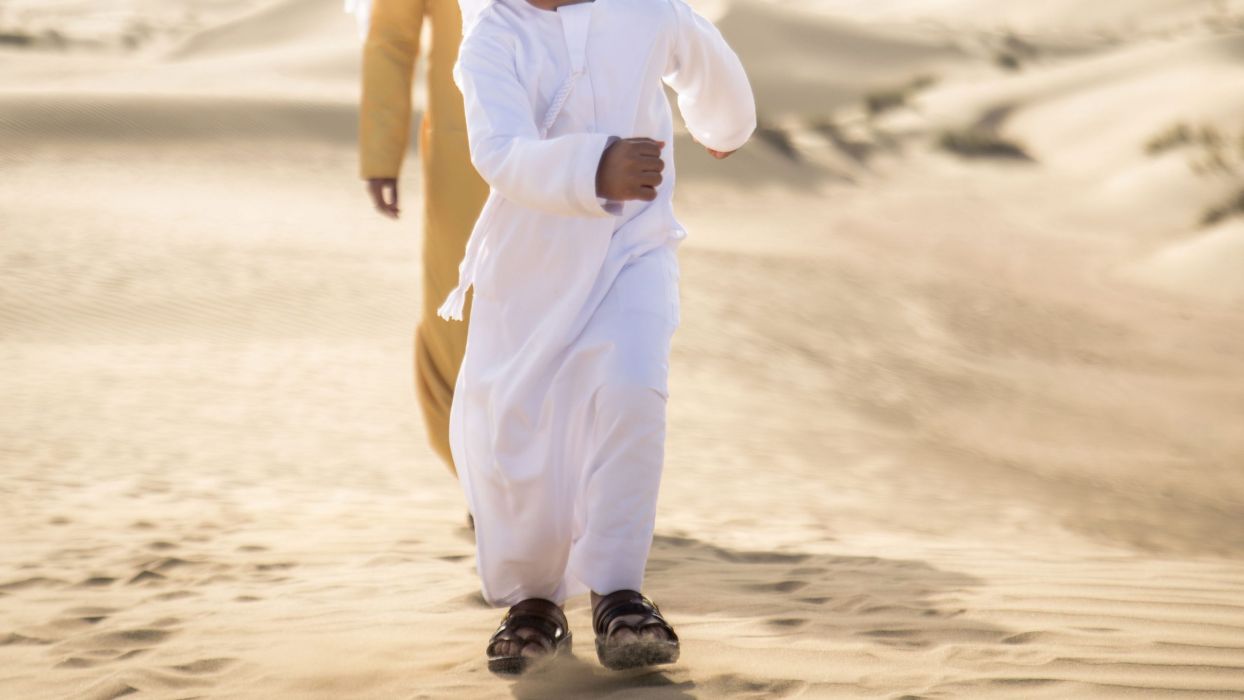30 Ḥadīth on Raising Children – Advice for Parents and Educators
Shaykh Mūsá Richardson

Lesson 01: Raḥmah is the Foundation of Education
Raising children correctly is a vitally important issue for every parent and every educator because it is an amānah from Allāh. Allāh has ordered us:
يَا أَيُّهَا الَّذِينَ آمَنُوا قُوا أَنفُسَكُمْ وَأَهْلِيكُمْ نَارًا ﴿٦﴾
O you who believe save your own selves and your families from the hellfire.
[Al-Taḥrīm, 66:6]
Introduction:
From the advantages of Islām is that Allāh has given due attention to all of the stages of a person’s life. The childhood stage is the most important stage. Childhood will set the pace for the rest of a person’s life, especially, early childhood. If he is taught to be upright at this early stage, it is very likely that he will continue to be upright throughout his life. However, if he is taught corruption, he will be corrupt for the rest of his life unless Allāh has mercy on him. If you raise a child properly he will remain on this and you will have fulfilled your responsibility.
Abū al-ʿAbbās begins with the topic “Raḥmah is the Foundation of Education.”
He expounds on how mercy is the beginning, middle and end goal of of educating children. Allāh has informed us that the Prophet (ṣallallāhu ʿalayhi wa-sallam) is the best example for us to follow. And the Prophet (ṣallallāhu ʿalayhi wa-sallam) has informed us that: “There is no newborn child except he is born upon the fitrah-the natural inclination that a person has to accept the truth and it is his two parents who make him a Jew, Christian or Fireworshipper.”
Every child is inclined towards accepting tawḥīd, becoming upright and accepting Allāh’s guidance. Parents and educators play a big role in affecting the outcome of the child (you can corrupt the child, take him away from his fitrah, make him go astray or you can give him the tools to become a righteous person). We are reminded that this duty we have is a crucial one and Allāh has given due attention to this responsibility. Allāah and his Messenger (ṣallallāhu ʿalayhi wa-sallam) have laid down principles and guideline that will assist us in raising children correctly. If we take them on, we will be successful.
We are warned that if we teach children corrupt principles then our sins will be compounded with their sins of following what we have taught them.
Abū al-ʿAbbās brings four aḥādīth that explain the importance of correctly educating those in our care. From them is the ḥadīth of Abū Hurayrah, who said the Messenger of Allāh (ṣallallāhu ʿalayhi wa-sallam) said, “Whoever invites the people to some kind of guidance will get the reward of each person whom he guides, without decreasing their reward. Whoever invites to an evil thing, he will have the sin of himself and those who followed him.”
We are warned, as parents and educators, to beware of our actions because children can emulate our bad actions even if we do not tell them to. We are warned also that this issue of guiding children correctly is a grave one as the Prophet (ṣallallāhu ʿalayhi wa-sallam) has warned us of the dire consequences of not taking care of this amānah that Allāh has entrusted us with.
From the questions asked:
[Q1]: If the father is absent from the home is the son obliged to take on role as guardian?
[Q2]: Is the son (who takes on role as guardian) able to order his mother?
[Q3]: What is the ruling of a woman staying in her own house in her husband’s absence?
[Q4]: How long can the guardian of a family be away from his family?
Lesson 2: Examples of the Prophet’s Character in Educating and Cultivating
This lecture is a continuation of the first. Brother Mūsá began by briefly reviewing the previous lecture (Raḥmah is the Foundation of Education).
He brings four more aḥādīth, this time dealing with how the Prophet (ṣallallāhu ʿalayhi wa-sallam) taught and interacted with the youth and the children.
After explaining each ḥadīth, he explained the benefits derived from them.
From the aḥādīth discussed is the ḥadīth narrated by Anas ibn Mālk, which he narrated from Muʿādh ibn Jabal. Muʿādh was with the Prophet (ṣallallāhu ʿalayhi wa-sallam) on his riding beast. The Prophet ( ṣallallāhu ʿalayhi wa-sallam) said. “Yā Muʿādh ibn Jabal.”
Muadh replied, “I’m here to submit to your request.”
The Prophet (ṣallallāhu ʿalayhi wa-sallam) said “Do you know the right of Allāh over the servant?” Muʿādh said “Allāh and His Messenger know best.”
The Prophet (ṣallallāhu ʿalayhi wa-sallam) said, “The right of Allāh over his servant is that they worship him only.”
They kept travelling…The Prophet (ṣallallāhu ʿalayhi wa-sallam) said to him, “Do you know what is the right of the servants if they worship Allāh alone?
Mua’adh answered, “Allāh and His Messenger know best.”
The Prophet (ṣallallāhu ʿalayhi wa-sallam) said, “He will not punish them.”
Some of the benefits derived from this ḥadīth:
- The role that tawḥīd plays when teaching children. Tawḥīd saves the Muslim from being punished. It should be paramount in every stage of children’s education. To keep their attention, it is very important to vary the methods used to teach children, making the lessons interesting to them.
- This ḥadīth also illustrates different techniques in gaining children’s attention. For example, call the name of the person when you want to teach them something. This gets their attention. They get interested, and they will know its something very important that they need to hear.
- The educator should select his words carefully. He keeps in mind the level of understanding of the children he is addressing. The prophet (ṣallallāhu ʿalayhi wa-sallam) used to take into account the level of the people he was addressing.
- The educator asks questions to check their level of understanding.
After each ḥadīth, Shaykh Mūsá answers related questions.










